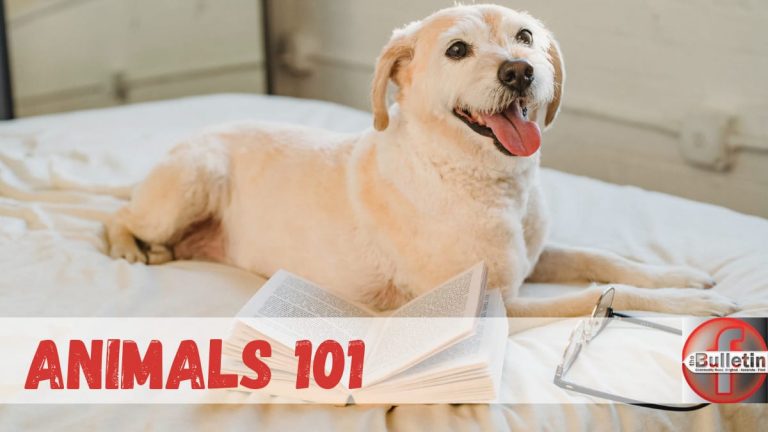
ANIMALS 101 – HOW TO MINIMIZE THE RISK OR HANDLE POISONED PET SITUATIONS.
There has been many recent cases of animal poisoning reported in and around the Secunda area and therefore it is important to know, in advance, what to do if this happens or how to minimize the risk. Poisoning is probably one of the worse deaths a pet can experience.
Your pets are living beings and they are your responsibility, including keeping them safe from any danger. It is sad too see how many people see pets as disposable objects and just use them for “protection”, instead of protecting them.
COMMON TYPES OF POISON
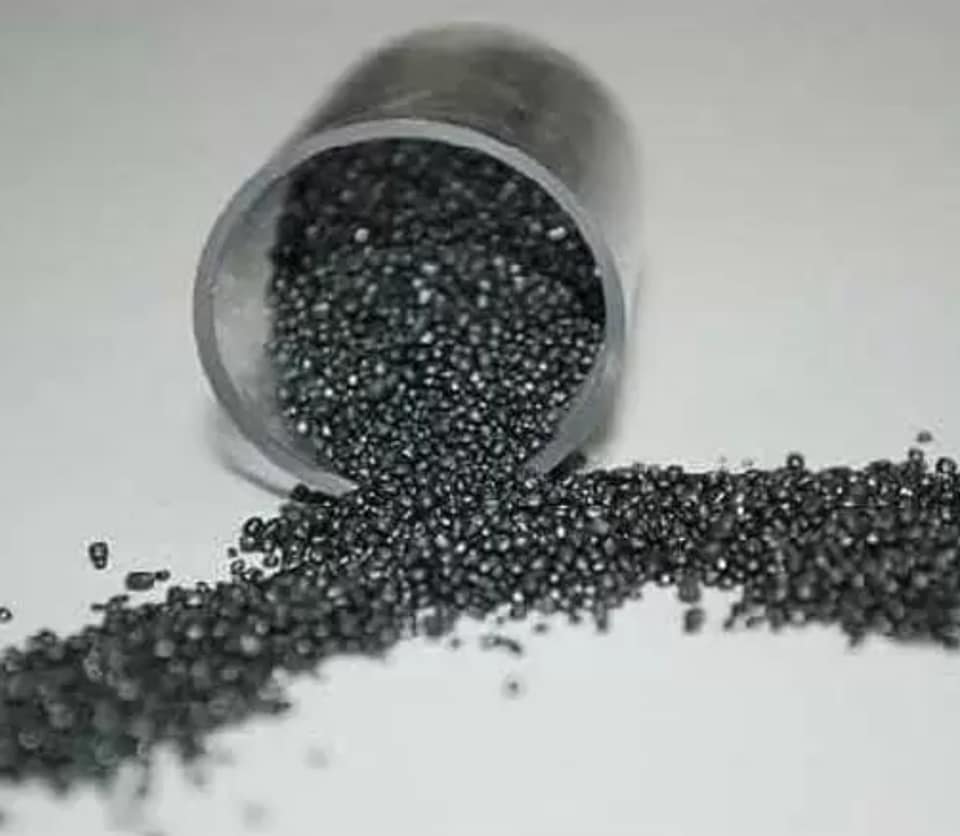
- Temik also known as Two Step or Aldicarb. It is a black granular pesticide fed to dogs inside a form of food and thrown over the fence.
- Rodenticides like Rattex or Finale
- Accidental poisoning with corrosive or petroleum-based toxins like spirits, thinners, petrol, or diesel.
- Accidental poisoning with non-corrosive toxins, medication or poisonous plants.
Also read: Animals 101 – REPORTING ANIMAL EMERGENCIES & CRUELTY.
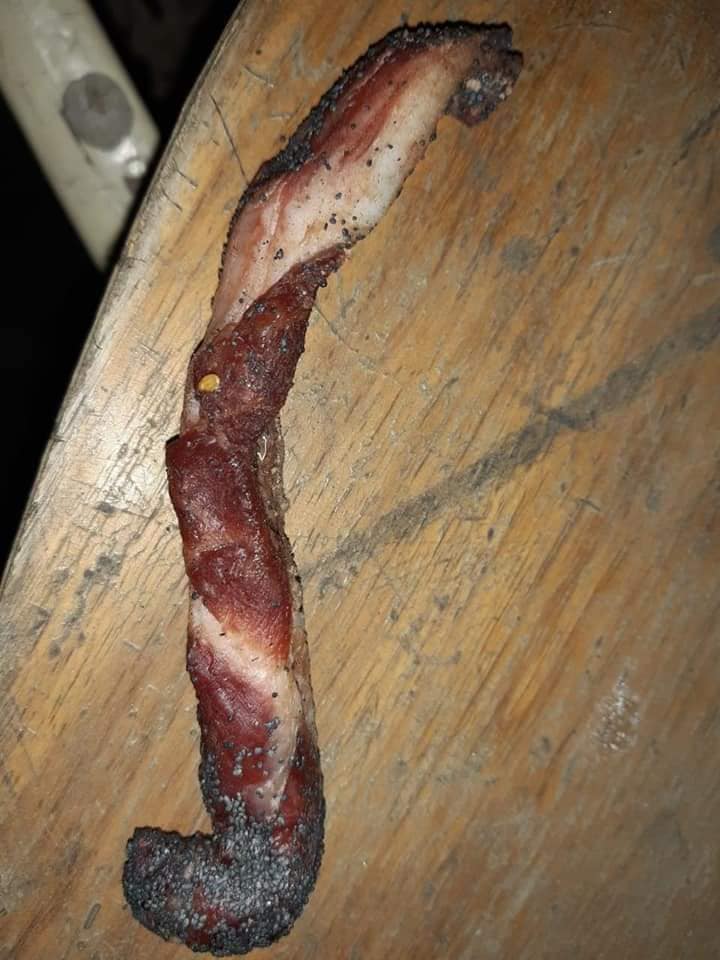
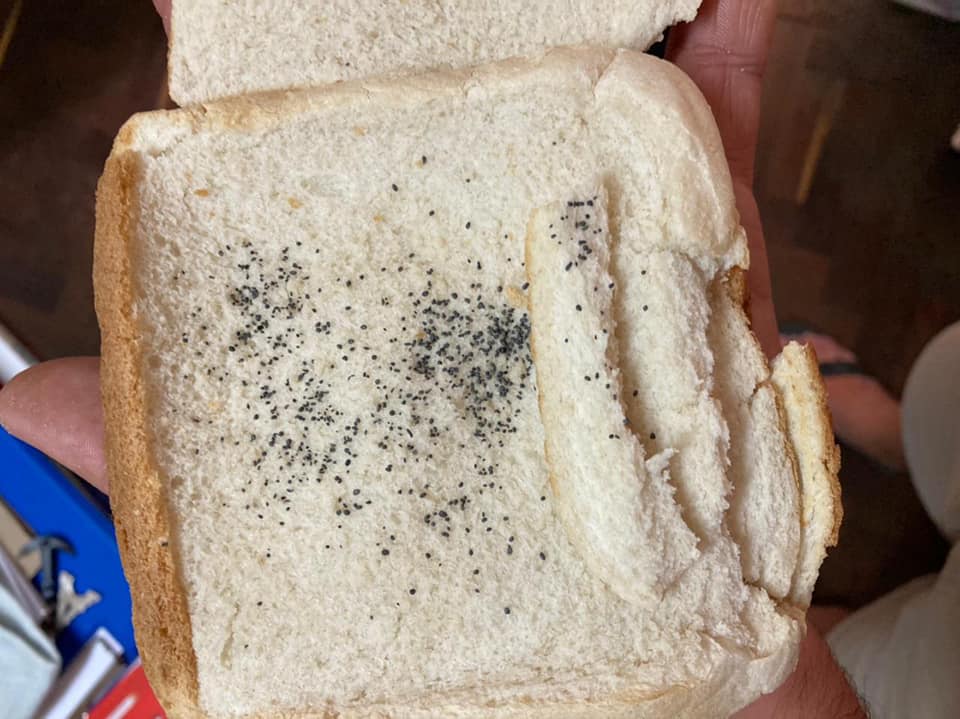
SYMPTOMS
The symptoms may vary depending on the type of poison, but generally can include the following:
- salivation
- lacrimation (excessive tearing)
- excessive urination
- diarrhea
- vomiting
- muscle tremors
- loss of appetite
- depression
- panting
- bleeding from nose or skin
- pale gums
- burns on the lips and mouth
- rapid heart beat
- convulsions
- disorientation
- anxiety
- paralysis and more
These pet poisonings can be prevented, or the risk can be minimized with certain measures.
BEFORE IT HAPPENS
Save your veterinarians emergency number and one or two alternatives in case yours is not available. You do not want to be searching for numbers in the moment when time is of the essence.
Buy your poison rescue packs from your local welfare organisation for as little as R30. This could possibly win a few life-saving minutes to take your animal to the veterinarian. It usually includes charcoal, salt, syringes and gloves. In addition to this we also bought Pet-e-med on Takealot for around R200. Read through the instructions prior to an emergency, so you are prepared.
Your animals are safer in the house or away from the front gate where others have access to your yard.
Always check your yard for foreign object before you let the pets out. Make this a daily ritual.
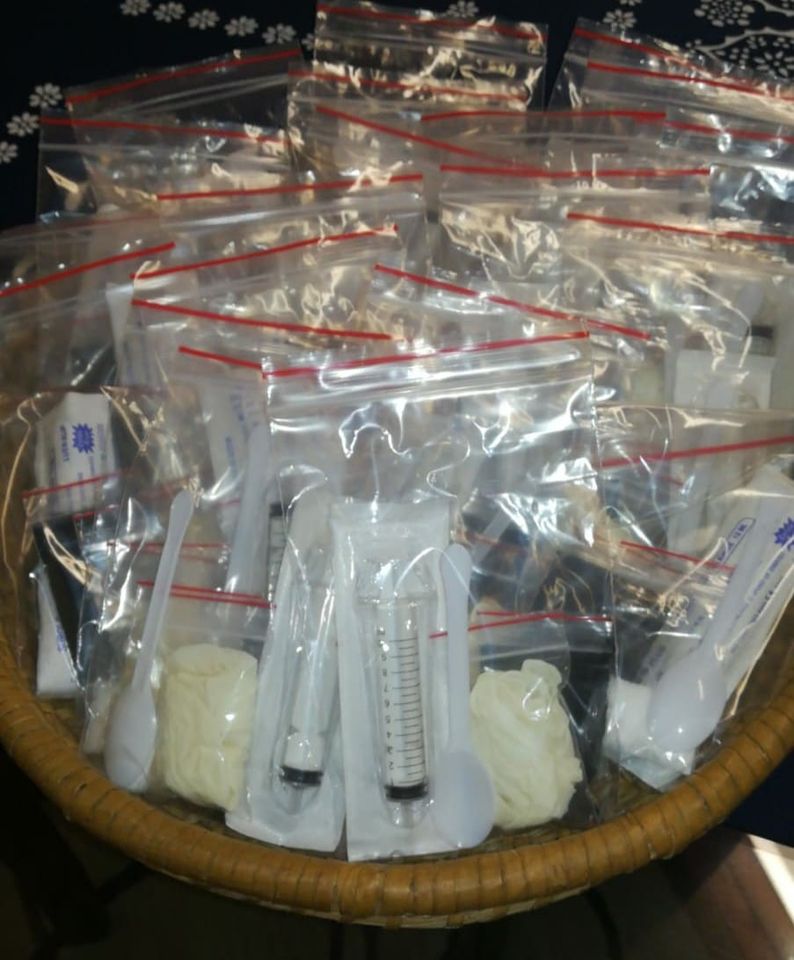
IF IT HAPPENED
Keep calm!
If the animal is still alive, take them to the veterinarian as soon as possible after administering the poison rescue pack. Withholding medical care is an act of cruelty!
Use towels, plastic bags or gloves and do not touch the poison.
You still need to take your pet to the veterinarian even if you administered a rescue pack. The veterinarian can possibly safe them or end the excruciating suffering humanely.
If possible, take a sample of the poison to the veterinarian too.
Inducing vomiting will depend on timing. Read the instructions in advance!
Keep your other animals and kids away from the affected areas.
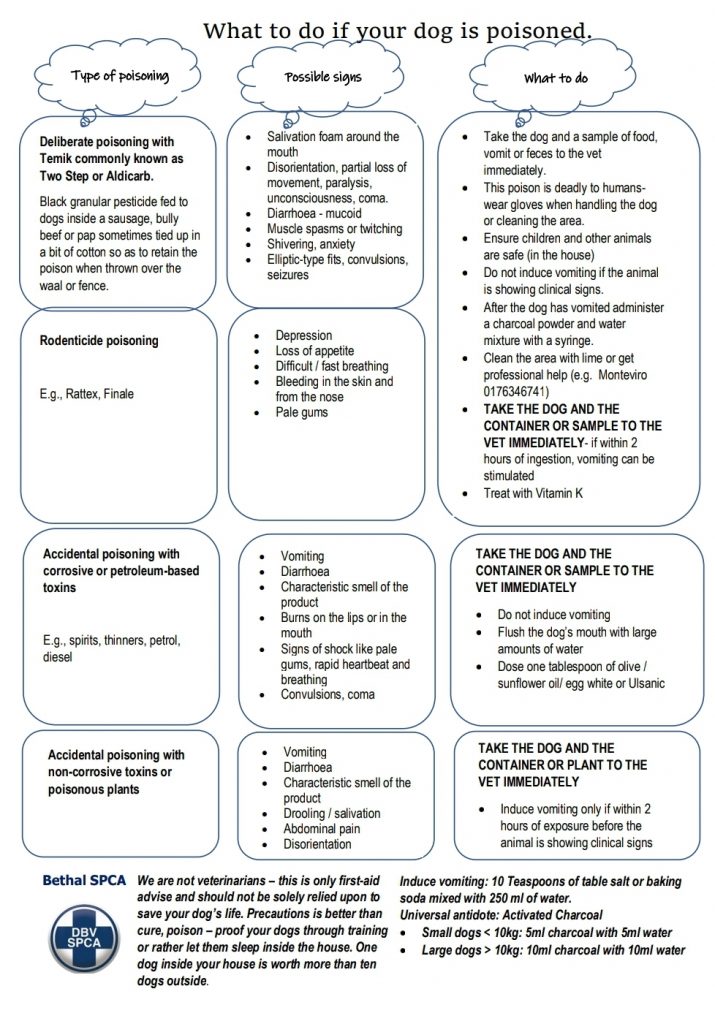
AFTER IT HAPPENED
If your veterinarian confirms poisoning, please inform your neighbourhood, local organisations, SPCA (as it is a case of cruelty) and open a case at your nearest SAPS. Even if you believe nothing will come from it, it creates a paper trail!
Contact one of the businesses that specialize in the removal of the corps and neutralizing the affected areas. Agricall pest control secunda / Monteviro environmental services
Although there are those who poisons with malicious intent, poisoned pets are usually an indication of possible break-ins. There may be various animals in your street poisoned around the same time frame, so share this information with your neighbours.
Dr. Rudolph Zinn from UNISA’s School of Criminal Justice conducted research into understanding and preventing house robbery in South Africa.
Based on in-depth interviews with convicted robbers, the following was part of what he found. These security measures are a major deterrent to crime:
•Electric fences
•Detection beams
•Circuit Television (CCTV)
•DOGS THAT SLEEP INSIDE THE HOUSE. Robbers consider this to be the biggest deterrent of all
So not only will you be alerted by your dog that is inside, but you can also protect them. Many animals get killed, hit, cut, poisoned during or prior to these robberies. You need to protect them!
Next week we will look at the rising pet thefts risk and what you can do to keep them safe.
WHEN YOU KNOW BETTER, DO BETTER!